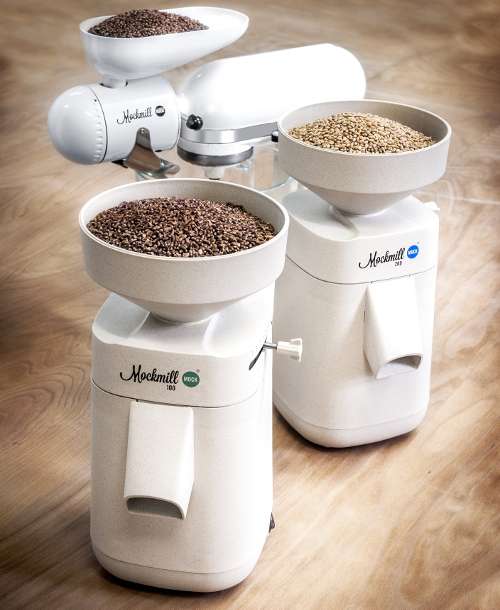Frequently Asked Questions
Below is a list of some of the most commonly asked questions from customers.
Are there other names for Einkorn?
Yes, because of it’s ancient origins, einkorn is known by many names across the world: Triticum monococcum (Latin, scientific name), einkorn (German), small spelt (Italian), farro piccolo (Italian), engrain (French), Le petit épautre (French), tiphe (Greek), siyez (Turkish), and sifon (Hebrew). Learn more about the other names for einkorn here.
Where can I learn more about the nutritional benefits of einkorn?
We’ve summarized some important facts about Einkorn nutrition here.
Do you sell einkorn flour?
Yes, we offer two types of einkorn flour:
- Organic 100% Whole Grain Einkorn Flour (Freshly milled in our stone mill)
- Organic All-Purpose Einkorn Flour
Our Einkorn All-Purpose Flour is comparable to a “white einkorn flour”, only most white flours have additives (such as bleach and other chemicals). Our flour does not.
Our 100% whole grain einkorn flour is freshly milled in our stone mill. It ships the same day it is milled.
Both flours are available for purchase at our online store, here.
Even though we offer flour, we actually prefer and recommend that you grind your einkorn flour at home.
Here’s an article about why and how.
In short:
- It’s more affordable (in the long run) to mill your flour at home because einkorn berries are less expensive than flour.
- Properly stored, einkorn berries (unmilled) last for years, making it more affordable to stock up.
- Flour oxidizes and loses its nutrients over time.
- If not kept properly, flour will go rancid.
- Milling einkorn flour at home is easier than ever, thanks to modern electric countertop mills.
What is the best grain mill for making einkorn flour at home?
Einkorn berries can be ground into flour with almost any counter top mill. We recommend using the Mockmill countertop stone mill to produce the best flour.
We wrote a post about it. In the post, you’ll find some helpful tips for selecting a mill and discount coupons to use if you’re serious about getting your own mill. Click here to read it.

Can I use these einkorn berries for seed?

Einkorn Wheat Kernels in the Hull
Einkorn grows natively in a hull that does not separate from the kernel during harvest. To prepare einkorn for food, we use a dehulling process to remove the hull from the kernel. The result is einkorn berries ready to be ground into flour and used for baking.
This makes einkorn very unique among varieties of wheat. Experts say the hull protects the kernel from disease and rot. As a result of this dehulling process, however, some of the berries do not sprout as well as they would if they had been left in the hull.
If you plan to use the einkorn you purchase from our website as seed, you should first test a small amount to verify that it does sprout according to your expectations.
At some point in the future, we hope to offer einkorn seeds for sale. For now, they are so rare that it’s impractical to offer them for sale.
Where is this einkorn grown and is it organic?
Our einkorn is grown in Idaho, USA and is certified Organic. We are 6th generation farmers dedicated to restoring ancient einkorn, using organic and regenerative farming practices.
Our acres of einkorn change from year to year because we rotate our crops, and this affects how many acres we can grow. We also have a few farmers in our area who grow for us when we don’t have enough acres.
How many cups of flour does 1 cup of einkorn berries make?
One cup of einkorn wheat berries will make about 1.5 cups of flour, depending on how finely you grind your flour.
Do you offer pricing for wholesale or bulk orders?
Yes, we are seeking wholesale partners who can offer einkorn in their local areas. Please complete the bulk and wholesale application, and we’ll get back with you with pricing and wholesale requirements.


hello!
i really like this product. could you please tell me if you guys use any pesticides or synthetic fertilizers while growing the wheat? or is it grown 100% natural way?
thank you
kushal
Hi Kushal, we do not use pesticides, herbicides, or any synthetic fertilizers at any stage of the process.